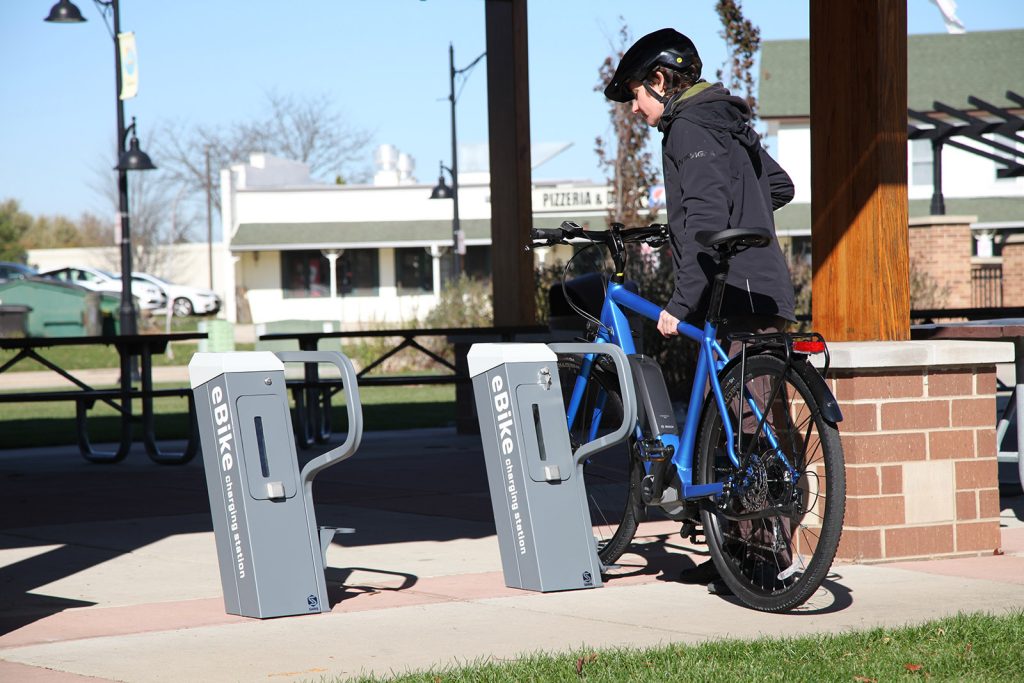Electric bikes, or e-bikes, have gained popularity as a sustainable and efficient mode of transportation. One important aspect of owning an e-bike is understanding the charging time required to keep your bike powered up and ready for your next adventure. The charging time and the distance an electric bike (e-bike) can travel on a full charge can vary significantly based on several factors, including the battery capacity, the level of assistance used, terrain, rider weight, wind conditions, and more.
In this blog, we will delve into the factors that affect e-bike charging times and provide you with a comprehensive guide on how long it typically takes to charge an electric bike. So, let’s explore the world of e-bike charging and ensure you have all the information you need to make the most of your electric cycling experience.
Battery Capacity and Charging Speed

The charging time of an electric bike largely depends on the battery capacity and the charging speed. E-bike batteries come in various capacities, typically measured in watt-hours (Wh). The higher the watt-hour rating, the longer it will take to charge the battery fully. Additionally, the charging speed varies based on the charger’s output and the e-bike’s compatibility. Most e-bikes come with a standard charger that provides an output of around 2 amps, but some higher-end models offer faster charging capabilities.
For example, if you have a 500Wh battery and a 250W charger, it might take around 2 hours to charge the battery from empty to full (assuming no energy losses).
Also, get to know about E-Bike Fashion Accessories: Gear Up for Style and Safety
Range on a Full Charge
The range an eBike can travel on a full charge is often referred to as “electric assist range” or “eBike range.” Again, this can vary widely based on the factors mentioned earlier. On average, you can expect to travel anywhere from 20 to 80 miles (32 to 128 kilometers) on a single charge. With some high-capacity batteries and efficient eBike systems potentially reaching even farther.
Here are some key points affecting the e-bike range:
Assist Level: Using higher assist levels (more power) will consume the battery faster, reducing the overall range. Lower assist levels or no assist (riding on battery power alone) can extend the range.
Terrain: Riding on flat terrain typically allows for a longer range compared to hilly or mountainous terrain where the motor needs to provide more assistance.
Rider Effort: How much effort you contribute to pedaling also affects the range. If you pedal actively and use the motor for assistance rather than relying solely on the motor, you can extend the range.
Wind and Conditions: Wind resistance and weather conditions (such as headwinds) can impact range.
Battery Health: As batteries age, their capacity might diminish, leading to a shorter range over time. It’s essential to maintain the battery properly and follow the manufacturer’s guidelines for optimal performance and longevity.
Also read about How The Electric Bike Is Changing Travel: Is An E-bike Worth It?
Charging Methods
Electric bikes can be charged using two primary methods: onboard charging and offboard charging. Onboard charging refers to plugging the charger directly into the e-bike’s charging port, which is usually located on the frame or near the battery. Offboard charging involves removing the battery from the e-bike and connecting it to a separate charger. Onboard charging is more convenient, as you can charge the e-bike wherever there is an electrical outlet, while offboard charging allows you to carry spare batteries and swap them for extended rides.
Average Charging Times
The charging time for an e-bike can vary depending on its battery capacity, charger output, and the state of charge when you begin charging. On average, it takes approximately 4 to 6 hours to fully charge an e-bike battery with a capacity of around 400-500 Wh using a standard charger. However, some e-bike models may have larger batteries that can take up to 8 hours or more to charge fully. It’s important to refer to your e-bike manufacturer’s guidelines for specific charging times and recommendations.
Factors Affecting Charging Time
Several factors can affect the charging time of an electric bike. These include the state of charge when you start charging, the ambient temperature, the age and condition of the battery, and the type of charger being used. Charging times may increase if the battery is deeply discharged or if the ambient temperature is extremely hot or cold. It’s crucial to keep your e-bike battery within its recommended temperature range and avoid exposing it to extreme weather conditions.
Charging Tips and Best Practices
To optimize the charging process and prolong the lifespan of your e-bike battery, it’s important to follow some charging tips and best practices. Avoid leaving your e-bike battery fully discharged for extended periods, as this can affect its overall capacity. Regularly clean the charging port and ensure a secure connection between the charger and the e-bike. It’s also advisable to charge your e-bike battery in a well-ventilated area and away from flammable materials.
FAQs
Q: How long does it take to charge an e-bike battery?
The charging time for an eBike battery can depend on factors such as battery capacity and charger output. On average, it takes around 3 to 6 hours to fully charge an eBike battery, but this can vary. Larger-capacity batteries may take longer to charge.
Q: How far can I travel on a full charge?
The range of an eBike can vary based on several factors, including battery capacity, assist level, terrain, rider effort, and weather conditions. On average, you can expect to travel between 20 to 80 miles on a single charge. However, individual variables can significantly impact the range.
Q: Can I charge my e-bike battery overnight?
Charging e-bike batteries overnight is generally safe, as most modern e-bikes and chargers have built-in safety features to prevent overcharging. However, it’s always recommended to check the manufacturer’s guidelines for specific instructions.
Q: Can I extend my eBike’s battery life by partially charging it?
Lithium-ion batteries, commonly used in e-bikes, do not have a memory effect. You can charge your e-bike battery as needed without worrying about partial charging affecting the overall battery life.
Q: Can I partially charge my e-bike battery, or should I always wait for a complete charge?
A: While it’s recommended to fully charge your e-bike battery whenever possible, partial charging is acceptable and won’t harm the battery’s performance. However, frequent partial charging may decrease the overall battery capacity over time.
Q: Can I use a higher-output charger to charge my e-bike faster?
It’s best to use the charger provided by the e-bike manufacturer to ensure compatibility and avoid damaging the battery. Using a higher-output charger may lead to overheating and reduce the battery’s lifespan.
Q: Should I leave my e-bike battery plugged in after it’s fully charged?
It’s advisable to unplug your e-bike battery once it’s fully charged to prevent overcharging. Leaving it plugged in continuously can lead to excessive heat buildup and reduce the battery’s longevity.
Q: Can I charge my electric bike battery with a solar charger?
Yes, it’s possible to charge your e-bike battery using a solar charger, but it may take longer depending on the solar panel’s wattage and environmental conditions. Additionally, make sure the solar charger is compatible with your e-bike battery.
Final Words
Knowing the estimated charging time for your electric bike is crucial for planning your rides and ensuring a seamless experience. Factors such as battery capacity, charging speed, and charging methods significantly impact the overall charging time. The charging time and range of an electric bike can vary based on various factors, including battery capacity, charger output, assist level, terrain, and more. On average, it takes around 3 to 6 hours to fully charge an eBike battery. The range can range from 20 to 80 miles on a single charge. By adhering to recommended charging practices and considering essential factors, you can optimize the charging process and maximize the lifespan of your e-bike battery. So charge up your electric bike, embrace the joy of e-biking, and embark on unforgettable adventures with confidence.





